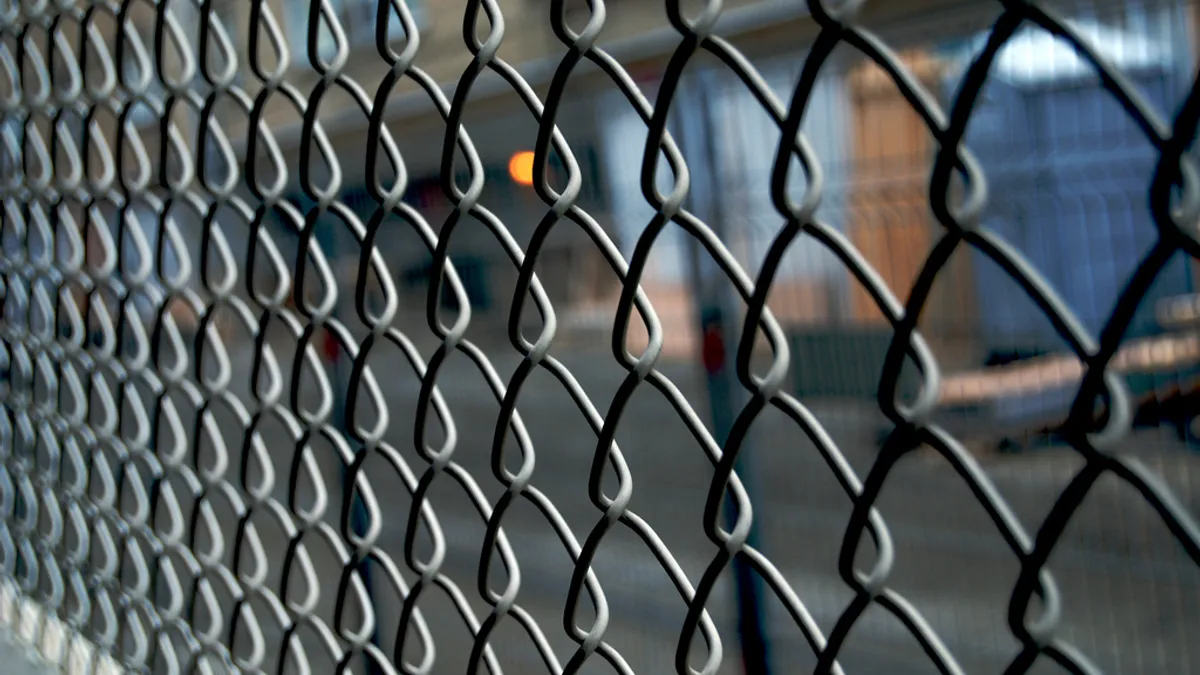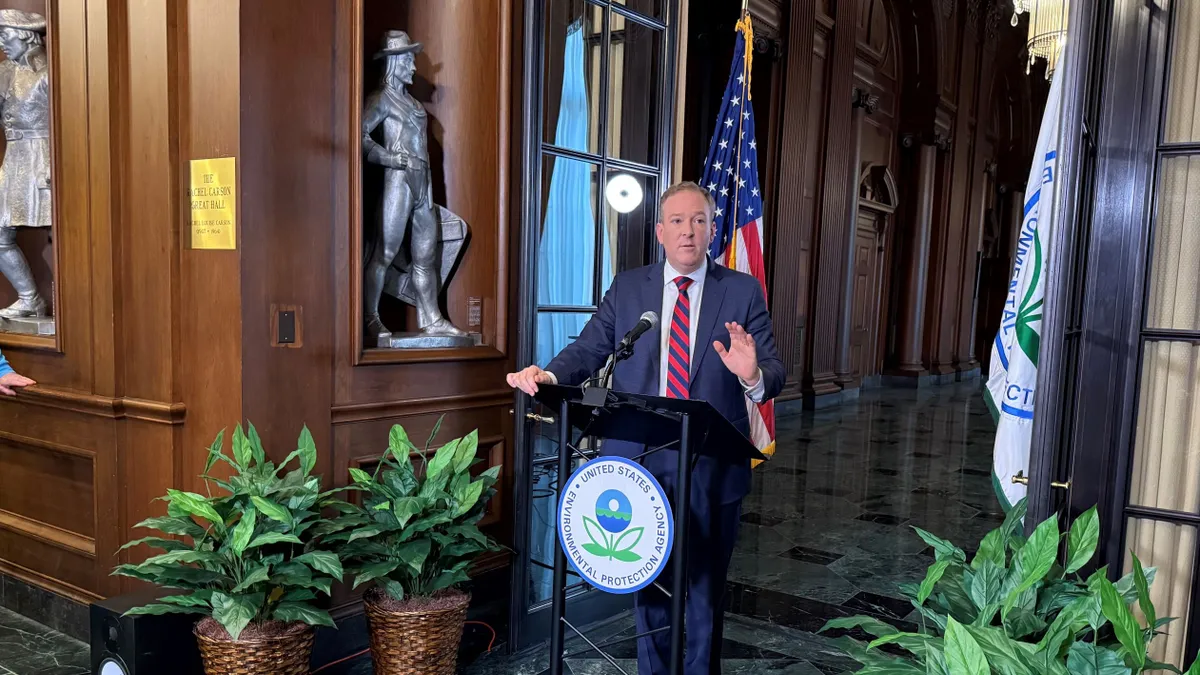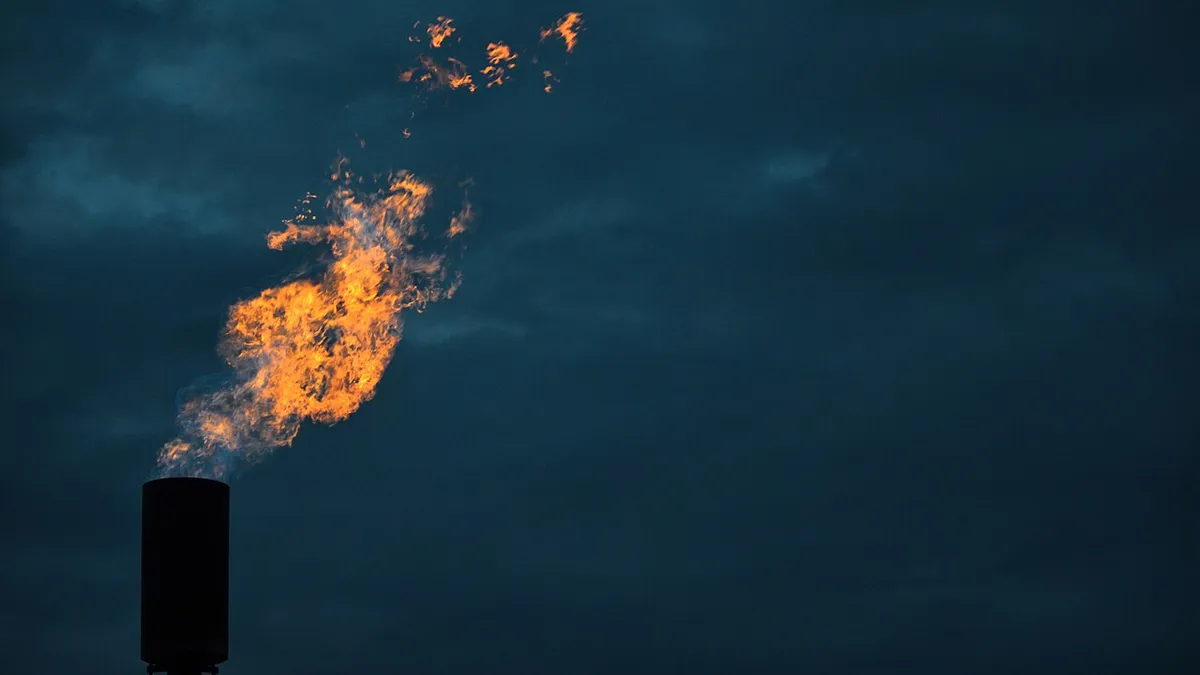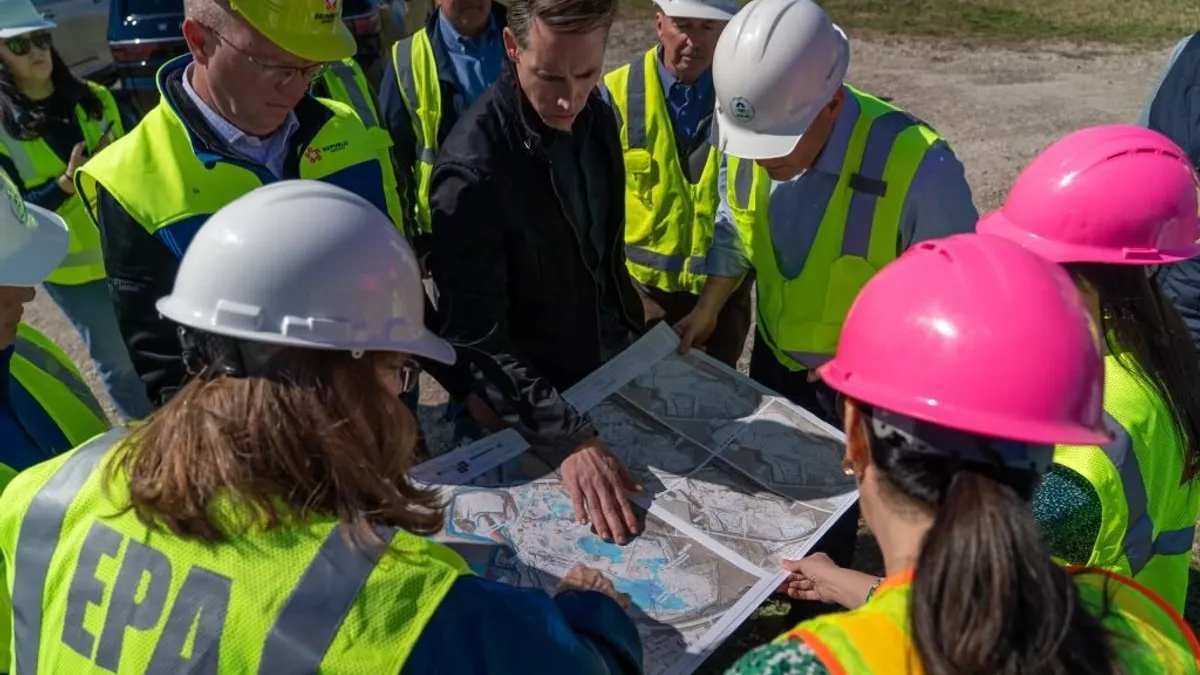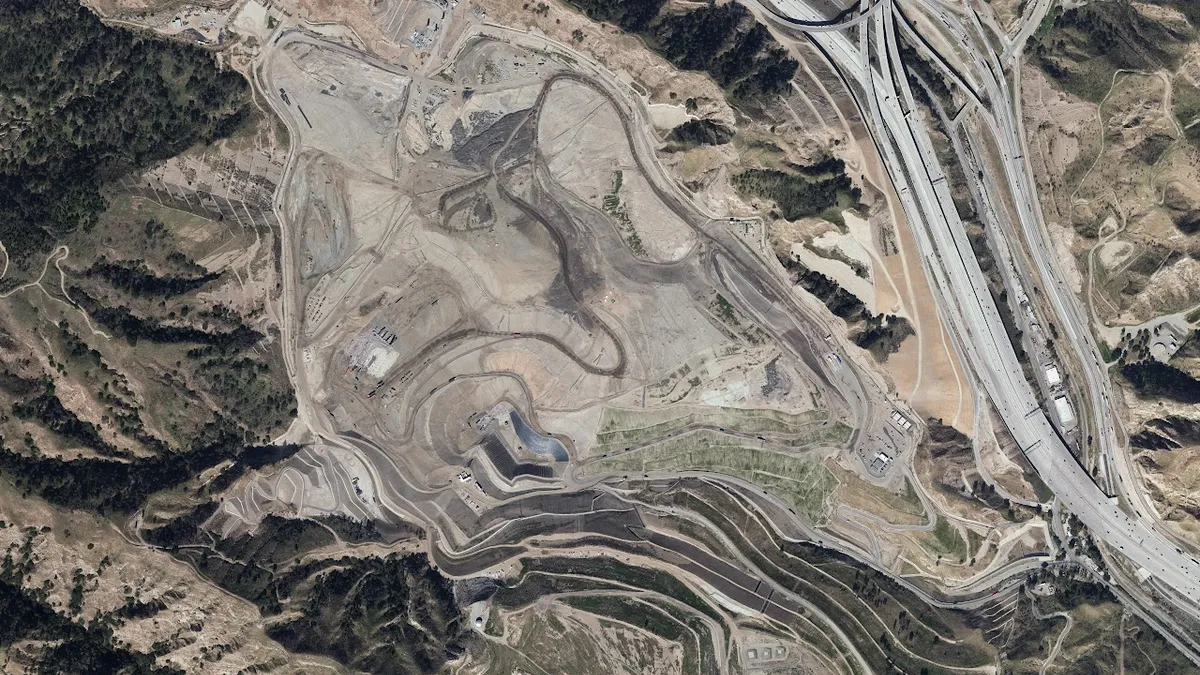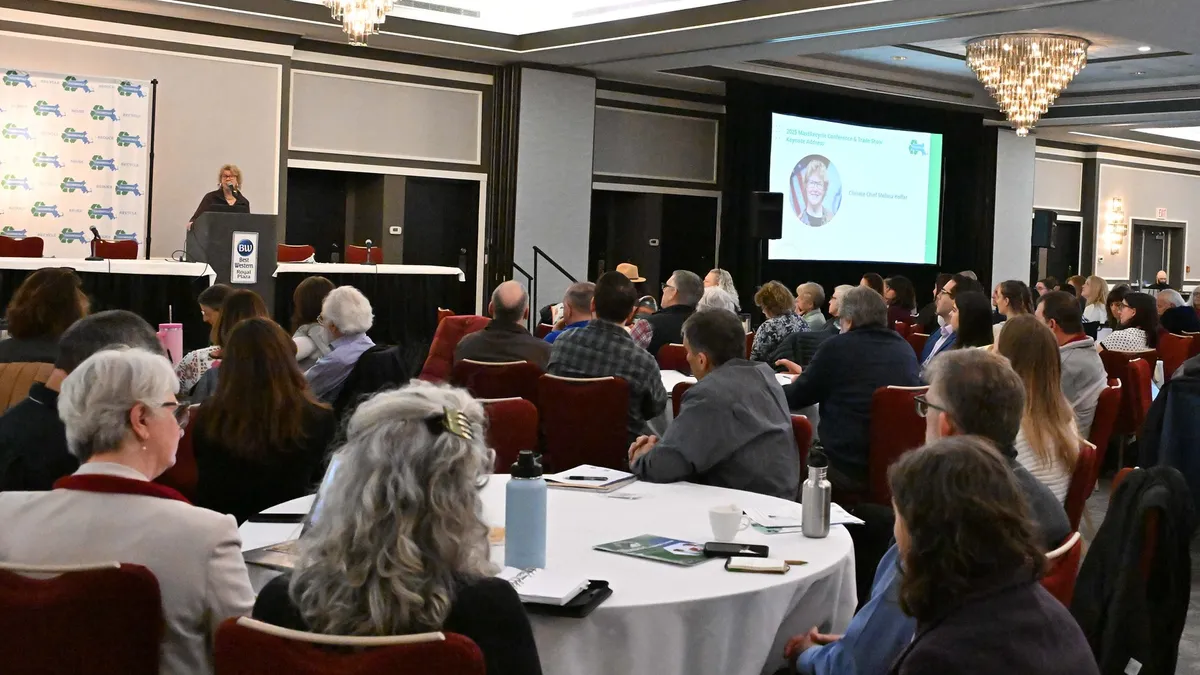Welcome to Scrap Collector, Waste Dive's Friday round-up of insights and stories you may have missed during the week.
MIGRANT CHILDREN TO BE HELD IN "TOXIC CAGES," REPORT REVEALS
The Trump administration's announcement last year of a "zero-tolerance" immigration policy triggered plans for migrant detention centers at two Texas military bases — and according to a new Earthjustice report released Tuesday, at least one of those proposed facilities carries significant health risks for the approximately 7,500 unaccompanied children that will be detained within its walls.
The report, which is based on dozens of publicly available Air Force environmental records, reveals that the planned Goodfellow Air Force Base (GAFB) detention facility in San Angelo will be built on top of the former Southeast Landfill — a site contaminated with toxic chemicals associated with increased risk of cancer and neurodevelopmental damage. Among the key findings:
-
Lead in the area was detected at levels 27 times higher than the EPA's current standard for play areas, while lead in groundwater exceeds the EPA's safety standard by over 20%. Volatile organic compounds (VOCs), which contaminate the air and threaten human health through vapor intrusion, have also been detected in the area.
-
Nine locations near the site exhibit polyfluoroalkyl substances (PFAS) contamination, and approximately a dozen chemicals associated with increased risk of cancer, liver problems and neurodevelopmental delays have been found at the nearby fuel storage facility.
"[D]etaining migrant children on GAFB is not just ill-conceived, it is dangerous and could damage the lives of thousands of children for years to come," the report concludes. "Migrant children fleeing desperate conditions do not belong in cages, let alone chemically polluted cages."
Multiple health, labor, civil rights and environmental organizations represented by Earthjustice — including the Hispanic Federation, Labor Council for Latin American Advancement and Southwest Environmental Center — are suing the government for additional documentation on all hazardous waste sites at the military bases that could potentially impact detainees and workers. Litigation is ongoing as of February 2019 — as are the administration's plans to move forward with the proposed facilities.
IN OTHER NEWS...
EPA releases PFAS "action plan" — The Washington Post
Following then-EPA administrator Scott Pruitt's announcement of a four-step PFAS plan at last year's National Leadership Summit, the agency unveiled Thursday its long-anticipated PFAS Action Plan. PFAS contamination, a growing concern for legacy landfill operators, has evolved into an increasingly knotty issue due to diverging state standards — and Thursday's plan represents what EPA officials describe as a "historic" effort to address the problem.
The plan details short- and long-term strategies the EPA is taking, including setting drinking water limits for PFOA and PFOS (two of the most commonly-detected PFAS), issuing groundwater cleanup recommendations for PFOA- and PFOS-contaminated sites, using available enforcement tools to address PFAS exposure in the environment, and improving and communicating PFAS research.
Environmental and public health groups, however, are criticizing the plan for failing to move quickly or aggressively enough to combat the issue. A 2016 Harvard University study found that potable water supplies serving more than 6 million Americans contain PFAS levels at or above the EPA's 70 parts per trillion advisory level — a threshold many experts argue should be significantly lower.
"While it's essential that polluters are forced to clean up their existing pollution, EPA must also act to prevent industry from discharging these toxins and endangering people in the first place," said Geoff Gisler, senior attorney at the Southern Environmental Law Center, in a statement. "The agency’s plan does nothing to stop ongoing pollution, a role that this administration has abandoned."
Americans thirstier than ever for bottled water — Plastics News
Plastic lovers, rejoice! Bottled water consumption increased by a projected 5.1% in 2018, widening its gap as the largest beverage category above carbonated soft drinks. That latter category is apparently still losing devotees, albeit at a less rapid pace than in previous years — carbonated soft drinks consumption decreased by a projected 0.3% in 2018, compared to 1.3% in 2017.
Bottled water's continued ascent spells good news for the single-serve PET bottle market — the segment accounted for 69.7% of bottled water sales last year, according to preliminary numbers from Beverage Marketing — and for the plastic industry as a whole.
"Plastic has been really the winner over the past five years," noted Gary Hemphill, managing director at Beverage Corp, at this year's Packaging Conference. "Plastic has gained over six share points over the past five years. Cans have lost a little bit. Glass has lost a little bit. Everybody has lost a little bit except for plastic."
"It's impacted by the categories you are connected to. In the case of plastic, obviously, the success of bottled water has a lot of impact," he added.
AROUND THE WORLD
Philippines fighting to end 5-year impasse over illegal Canadian waste — South China Morning Post
In 2013, 103 shipping containers holding an estimated 2,500 tons of illegal Canadian waste arrived in the Philippines — and five years later, 77 remaining containers filled with "plastic bags, soiled papers, household garbage, and used adult diapers" are still languishing in Filipino docks. The festering masses of hazardous waste have prompted mounting outrage from citizens, politicians and local activists — as well as from multiple Canadian and international environmental groups, which joined the EcoWaste Coalition of the Philippines earlier this week in demanding that Canada address the long-deadlocked issue.
Canadian Prime Minister Justin Trudeau, while conceding that repatriation of the waste is "theoretically possible," has consistently resisted the Philippines's calls for action — a move that Joe DiGangi, a science and technical adviser for the anti-toxic waste network IPEN, equates to "putting your garbage in your neighbour’s home, then refusing to remove it for five years while making excuses as to why you can’t take it back."
According to Aileen Lucero, EcoWaste's national coordinator, the controversy has cast a crucial spotlight on foreign waste dumping — even if Canada ultimately refuses to pick up its trash.
"The Canadian garbage dumping scandal has stirred a broad movement opposed to foreign waste dumping in the Philippines," she said. "It underscores the need for our government and others to ratify the Basel Ban Amendment, which seeks to prevent the transfer of hazardous waste from developed to developing countries for any reason, including recycling and disposal.”
SEEN & HEARD
Alright I'm back to your regular 99pi programming! Except now I'm obsessed with plastic https://t.co/BA9gFGO7Og
— Avery Trufelman (@trufelman) February 13, 2019
It takes gall for ACSH to publish an article by Michael Dourson on effects of #PFAS on the same day that EPA delays setting safe water levels. Imagine a Flint contamination episode in hundreds of cities across the US. 1/ @MonaHannaA #sickerfatterpoorer https://t.co/km3GnSh48m
— Dr. Leo Trasande (@leotrasande) February 14, 2019
our umbra question for the week is appropriately SEXY and it is: what's the most environmentally friendly birth control?
— eve andrews (@eefandrews) February 14, 2019
a surprisingly complicated question! i take my best shot at answering it here:https://t.co/fVznQ3YX95
Pitch: Preemptive Marie Kondo, a technique where you don’t buy stuff that you’re going to throw away.
— Anand Giridharadas (@AnandWrites) February 11, 2019



